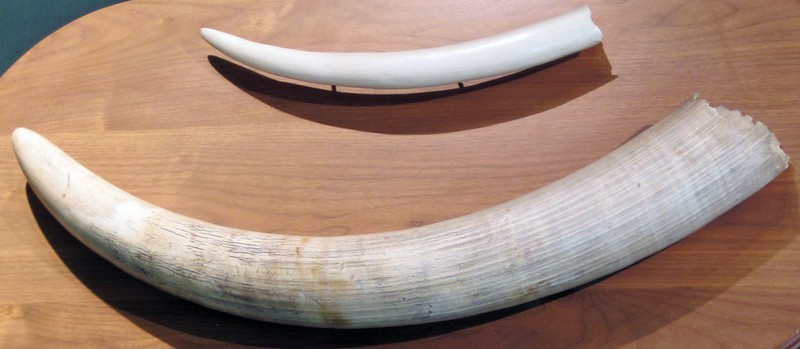The shipment was dispatched from the South African nation of Angola and transhipped in Singapore with an apparent intention to conceal its origin.
The ivory was packed in three containers and declared as peanuts.
But the suspicious “high-risk” label attached to the containers in combination with confusing language used in custom forms eventually attracted the attention of the port officials.
“As soon as the goods were loaded and unloaded at the port, the Haiphong Customs Department directed its units to conduct key supervision, inspect the goods with a container scanner and manually check the entire shipment,” said the press release.
Assuming the average weight of an elephant tusk to be 23 kilograms, the shipment could be responsible for the slaughter of as many as 150 elephants, which would be the equivalent of around 4% of Angola’s 3,400 elephant population.
With a weight of seven tonnes, the shipment does not fall too far from the interception of 9.1 tonnes of ivory in Vietnam in March 2019, which the non-profit Environmental Investigation Agency (EIA) described as historically the largest ivory seizure.
With an intensified clampdown on wildlife trade around Asia, Vietnam has in recent years become one of the global wildlife trafficking hotspots.
Vietnam was implicated in trafficking parts and products from at least 8,000 elephants, 111,000 pangolins and as many as 976 rhinos since 2010 according to a report by the EIA from 2021.
Some of the wildlife products shipped to the country serve the domestic market, where they are popular due to their use in traditional medicine, cooking and as a status symbol.
But some are also believed to be heading to other Asian countries, notably China, which in 2017 banned domestic ivory trade, showing increasing commitment to take on the illegal wildlife market.
While Vietnam claims to have stepped up its efforts to combat wildlife trafficking, law enforcement in the country remains critically low, with only 14% of wildlife seizures resulting in convictions in the decade preceding 2021 according to the EIA.



